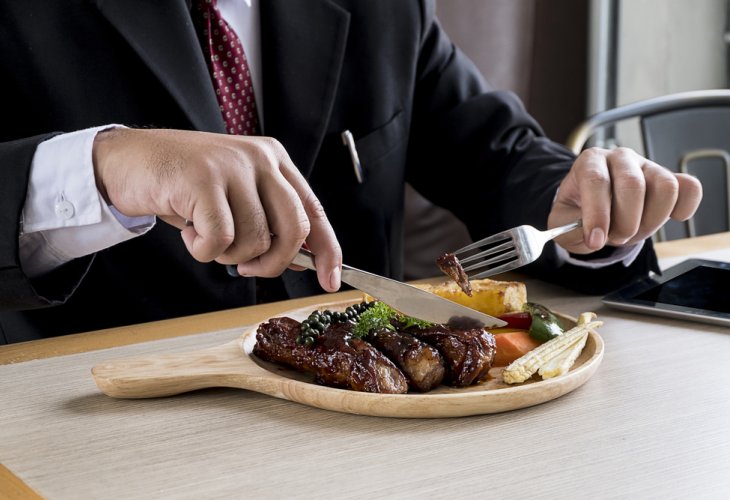Surprising: Want to Lose Weight? Start Eating Slowly
After various methods for weight loss, experts concluded that the best way to maintain a healthy weight begins with slow eating. Sounds easy?
 (Photo: shutterstock)
(Photo: shutterstock)After various methods for weight loss, experts concluded that the best way to maintain a healthy weight begins with the way we eat—slowly and without rushing.
Sounds simple? A team of researchers from Kyushu University in Japan conducted a study with over 60,000 men and women participants. Those who ate slowly had, on average, a narrower waist circumference and fewer obesity cases. In contrast, over 44% of participants who ate quickly suffered from obesity and had a larger waist circumference.
The study results were published in BMJ, where the researchers explained: "Changes in eating speed can impact obesity, BMI, and waist circumference. Interventions aimed at reducing eating speed could be effective in preventing obesity and lowering associated health risks."
"These results indicate that reducing eating speed can lead to a decrease in obesity cases and a reduction in BMI," they added.
Simon Cork, a researcher at Imperial College London, expressed reservations about the study results, arguing that reliance on participants' accounts of their eating speed—whether they ate slowly or quickly—is "significantly subjective," which could alter the data. Cork also pointed out that the study didn't specify the amount of food the participants consumed or whether they engaged in physical activity during the study.
Ultimately, despite the criticism, Cork agreed: "The study proves what we already believed to be true: that there is a link between slow eating and a lower likelihood of gaining weight, compared to fast eating."
If you're wondering about the connection between slow eating and weight loss, the answer is that when we eat slowly, we are more attentive to the body's feelings of satiety and hunger, preventing overeating. This feeling varies from person to person and happens when the body signals that it has received its required calories. Typically, the feeling of fullness does not appear immediately but after a while, so if we eat quickly, we might consume more than the body needs.

